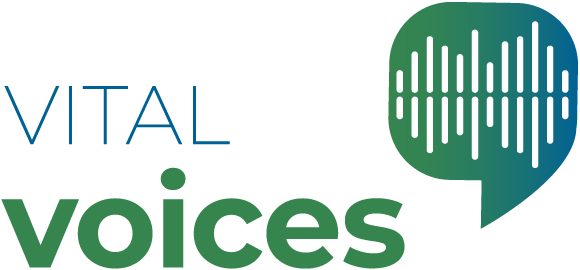Paulie’s Story
Name: Paulie
Gender: Male
Age: 45
Who is Paulie?
Paulie lives alone in Melbourne, Australia. He describes his ethnic background as ‘Australian’: he was born in Australia while his mother was born in the Philippines and his father was born in Austria. His primary source of income is a social security benefit for people living with a disability.* He describes the new hepatitis C treatment as ‘God’s blessing’ and his experience of cure as ‘overwhelm[ing]’.
Brief Outline:
Paulie was diagnosed with hepatitis C in 2002. He was advised against having the interferon-based treatment available at the time and instead focussed on his diet. In 2017 he was referred to a liver clinic and started the new treatment. It was successful, and he recalls feeling ‘overwhelmed’ and ‘happy’. He recently decided to have another test for hepatitis C, because he shared a spoon with someone while injecting drugs. Since his treatment, he prioritises keeping ‘healthy’ and doing a ‘bit of exercise’.
Paulie lived with hepatitis C for about 15 years. About five years after his diagnosis, he asked his doctor about having the interferon-based treatment that was available at the time. He recalls the doctor advising against treatment and instead to follow his advice not to ‘drink heavily’, to keep himself ‘well maintained’ and to ‘eat right’. Several years later he asked his doctor about treatment again. Given new treatment was coming in a couple of years, the doctor advised against having treatment at that time. As Paulie recollects, ‘I went and tried for the interferon program, and they […] told me, “Don’t worry about it. In about two years, they’ll be coming out with a new medication, and it would be way better and there’ll be no side effects, [un]like the interferon, and it would be very successful”’.
In 2017 a mental health worker referred Paulie to a specialist liver clinic. He recalls having a blood test and ‘brief chat’ about the new treatment, and leaving with a prescription. He describes the new treatment as very positive, as he didn’t experience any side effects and was cured of hepatitis C: ‘I just took it once every day for three months and got no side effects, or any problems with it, and didn’t even know I was having it. And whoosh, it was gone […] It was God’s blessing, I had no side effects. Didn’t even know I had it [… that’s] how normal it was’.
As Paulie explains, after three months of treatment, he had a blood test and was informed that the treatment had been successful. Describing how he felt at the time, he says, ‘Yeah, I was very overwhelmed, I was happy, I was vibrant, I was just happy that I don’t have to disclose to people who I get in contact with and, yeah, because there’s no need to, because I’ve [been cured of] the virus or the disease’.
Paulie is currently waiting on the results of a hepatitis C test after he recently shared a spoon with someone else when injecting drugs: ‘I’ve gone for another blood test again because I was worried because I haven’t shared any needles or [had] any blood-to-blood contact, but I have used someone else’s spoon, you know what I mean, during IV use’.
Since his treatment, health has remained a focus for Paulie: ‘I always eat healthy, so basically [I try to] keep healthy [and do] a bit of exercise’.
*Services Australia Disability Support Pension.
Paulie (M, 45, experience with new treatment [DAAs]) tells people he has hepatitis C and, while he has never experienced a stigmatising response, he says it is not an easy conversation to have.
I told a few friends [when I was diagnosed with hepatitis C]. They’re users, and anyone who I ever had drugs with, I always tell them before I have a hit with them. I always told a female [sexual partner] before I got intimate with them that I did have it, just as a way of courtesy […] Most people … no-one really had … well, reactions would be sad, upset, you know, but no-one was upset with me or making fun of me. I did feel a little bit [of] low self-esteem and that did make me feel a bit upset deep down, but what’s done was done. [I thought], ‘I’ve got the virus,’ so I had to deal with it.
Paulie (M, 45, experience with new treatment [DAAs]) says that treatment relieved him of the need to disclose his hepatitis C to potential intimate partners.
Yeah, [treatment] made me happy and content, so that way I don’t have to go around, yeah, always getting in contact with some people, you know, new people or in a relationship or having sexual affairs, I don’t have to say, ‘Excuse me, you know, I’ve got hep C, just so you know.’ Like, I just don’t have to say it [any more] because I’m [cured], so it takes away that agitation […When I found out I was cured,] yeah, I was very overwhelmed, I was happy, I was vibrant. I was just happy that I don’t have to disclose to people who I get in contact with and, yeah, because there’s no need to because I’ve […been cured of] the virus.
Paulie (M, 45, experience with new treatment [DAAs]) explains that while his GP advised him to have treatment, he wasn’t informed that he could have treatment again if he was cured but acquired the disease again in the future.
If I got it [again], I’d like to do [treatment] again, but I don’t know. Are you allowed to do it again? If I had hep C and I’d done the treatment and [been cured of] it and then I’ve caught it again, can you reapply and get the treatment done again, or [do] they ban you or something after you’ve done it once and you get it again or something? I don’t know.

